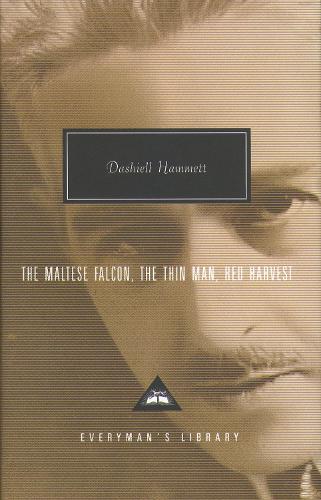
The Maltese Falcon, The Thin Man, Red Harvest
(Hardback)
Publishing Details
The Maltese Falcon, The Thin Man, Red Harvest
By (Author) Dashiell Hammett
Everyman
Everyman's Library
15th October 2000
23rd November 2000
United Kingdom
Classifications
General
Non Fiction
Crime and / or mystery fiction
813.52
Physical Properties
Hardback
672
Width 135mm, Height 211mm, Spine 37mm
717g
Description
As an operative for Pinkerton's Detective Agency Dashiell Hammett knew about sleuthing from the inside, but his career was cut short by the ruin of his health in World War I. These three celebrated novels are therefore the products of a hard real life, not a literary education. Despite - or because of - that, Hammett had an enormous effect on mainstream writers between the wars. Like his readers, they were attracted by the combination of laconic style, sharp convincing dialogue, vivid settings and, above all, the low-life, hard-boiled characters who populate the streets of his stories. Taking detective fiction out of the drawing-room, Hammett 'gave murder back to the kind of people that commit it', as Raymond Chandler said. In so doing, he left his mark on modern fiction.
Author Bio
Samuel Dashiell Hammett (1894-1961) is recognized as the first master of hard-boiled detective fiction. His lean writing style, cynical characters and complex plots brought a new energy to pulp magazines then went on to define the genre in movies, radio and television where the private eye series became an entertainment staple. Hammett wrote more than 80 short stories and five novels: "Red Harvest" (1929), "The Dain Curse" (1929), "The Maltese Falcon" (1930), "The Glass Key" (1931) and "The Thin Man" (1934). He created tough guys Sam Spade and the Continental Op as well as debonaire sleuths Nick and Nora Charles. He wrote a comic strip ("Secret Agent X-9"), an original radio series ("The Fat Man") and worked on numerous scripts, often simply to polish dialogue. Hammett's crisp, colorful language brought gangster slang into everyday speech.
